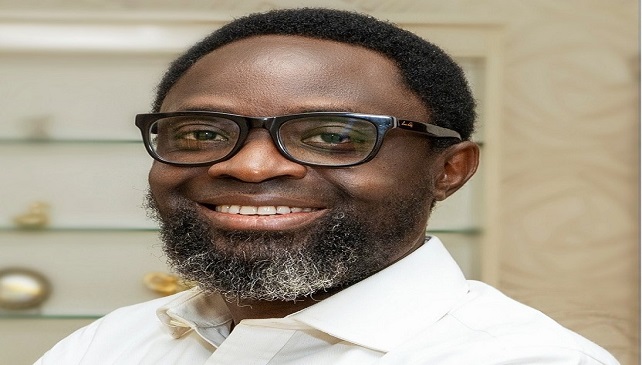News
NLC Fumes Over Telecom, Electricity Tariff Hikes

Nigeria Labour Congress (NLC) has alerted its affiliates to prepare for a possible nationwide protest over the recent hike in telecommunications service tariffs and the proposed electricity band migration plans.

The decision was reached during the National Executive Council (NEC) meeting of the Labour Centre in Yola, Adamawa State.
The latest development comes after the congress expressed skepticism about the government’s commitment to implement the earlier agreement, reached on February 21, 2025, through a Joint 10-Man Committee, which reduced the proposed telecommunications tariff hike from 50 per cent to 35 per cent.
The labour centre warned that it would not hesitate to take action if the implementation of the agreement did not meet its expectations.
The NLC has also condemned the Nigerian Electricity Regulatory Commission’s (NERC’s) plan to reclassify electricity consumers under the pretext of service improvement.
According to Congress, this strategy is a thinly veiled attempt to impose unjustified tariff hikes by forcefully migrating consumers from lower bands to the more expensive Band A.
In a communique, Joe Ajaero, president, NLC, and Emmanuel Ugboaja, general secretary described the move as “economic violence.”
The NLC accused NERC and the ministry of power of exploiting struggling Nigerians.
The congress warned that any further increase in electricity tariffs would trigger nationwide protests. It stressed that workers and the masses should not bear the burden of the government’s fiscal policies.
Part of the communique reads: “NEC categorically warns that should the implementation of the agreement on March 1, 2025, be not as agreed, the National Administrative Council (NAC) is mandated to immediately deploy all necessary instruments to enforce compliance in line with the February 10, 2025, Central Working Committee (CWC) directive.”
“On the migration of electricity consumers to increased tariffs, the NEC unequivocally rejects the ongoing sham reclassification of electricity consumers by the Nigerian Electricity Regulatory Commission (NERC), which seeks to forcefully migrate consumers from lower bands to Band A under the guise of service improvement while, in reality, imposing unjustified extortion on the masses.
“This systematic exploitation, sanctioned by the Ministry of Power, is nothing short of economic violence against the working class and the broader Nigerian populace.”
The NLC NEC reaffirmed the working class’s historical responsibility to resist all forms of exploitation and oppression and called on all affiliates, industrial unions, and progressive allies to remain on high alert and be fully prepared to engage in decisive mass action against all state anti-people policies.
News
Leadway Assurance Commences Use of Fintech in Insurance Product Distribution

Leadway Assurance has entered into strategic partnership with Paga, the fintech company behind the Doroki merchant platform for the distribution of insurance products.

In the partnership, Paga will use its technology to deliver comprehensive insurance solutions designed specifically for Doroki merchants. The collaboration aims to help merchants safeguard their businesses against everyday risks and recover quickly from unforeseen events. Speaking on the partnership, the General Manager, Doroki Merchants, Arike Okwunowo, said the development meant that its merchants could focus on growing their businesses with peace of mind due to insurance protection.
“At Doroki, we see our merchants as partners in driving economic activity across Nigeria’s retail landscape. This partnership with Leadway, an insurer with decades of experience and a strong reputation for reliability, means our merchants can focus on growing their businesses with the peace of mind that they’re protected,”
Also commenting on the development, Head of Digital Business, Leadway, Diana Mulili reiterated Leadway’s commitment to expanding access to financial security for every Nigerian, saying, “At Leadway, we believe insurance should integrate seamlessly into the everyday realities of people and businesses.
“By partnering with Doroki, we are embedding practical, easy-to-understand insurance solutions into a platform—helping them protect their income, assets, and livelihoods while continuing to grow with confidence.”
News
New Study Reveals How Moniepoint Powers Nigeria’s Downstream Oil Sector with Same-Day Settlements and Working Capital Boost

In a move to strengthen Nigeria’s downstream oil and gas sector, Africa’s all-in-one financial platform for businesses and their customers, Moniepoint Inc. says it is transforming how petrol stations across the country manage payments, access credit, and track inventory through innovative financial solutions.

As the largest distribution network for financial services in Nigeria, the leading banking and payments platform trusted by million in its latest case study titled, “Fueling the Nation: How Moniepoint Powers Nigeria’s Oil and Gas Industry”, reaffirmed its commitment to providing digital payment solutions and business management tools to improve operational efficiency in Nigeria’s downstream sector.
The study released recently examined how petrol stations play a crucial role as vital distribution points for fuel in Nigeria, especially in areas with limited access to alternative energy sources. Over 90 per cent of passenger and freight movement in Nigeria is by road, literally fueled by petrol stations that facilitate an average of 41 to 47 million litres of petrol every day.
The downstream oil and gas sector has been considered as the lifeblood of the Nigerian economy, however, for decades, petrol station operators have grappled with the “T+1” settlement cycle, where funds from card payments are only accessible the next day. In an industry with razor-thin margins and the need for immediate restocking, this delay often leads to “dead tanks” and lost revenue.
According to the case study, Moniepoint has bridged this gap by introducing same-day settlements, ensuring that station owners can access their funds instantly to pay suppliers and keep pumps running. The report further reveals that 90.9% of petrol stations now utilize POS terminals as standard infrastructure, with digital channels accounting for 43% of all fuel payments nationwide.
The Moniepoint case study on Nigeria’s downstream oil and gas sector provides very insightful commentary on critical aspects of running a petrol station, including payment systems, inventory management, and funding challenges.
Giving insight into the report and its relevance to the nation’s energy segment, Managing Director, Moniepoint Microfinance Bank, Babatunde Olofin, noted that the study seeks to deepen policy engagement, provide actionable intelligence on critical success factors needed for the nation’s socio-economic growth across different verticals.
Olofin noted, “We are pleased to release this comprehensive report on Nigeria’s downstream sector. Moniepoint’s reason for being is to create financial happiness and power dreams. Reports like this move us in that direction, enabling us to support critical infrastructure that keeps the nation moving.
“Looking at the relevance, with data on their business transactions and our business management tools, petrol stations can effectively plan their inventory and availability, knowing exactly when to stock up and ensuring operations run smoothly to serve more customers.
“By providing fuel retailers with the financial tools they need, Moniepoint is creating a future where access to reliable fuel distribution is improved and represents more than a fundamental right for all in an equitable and efficient system.”
Some other Key insights from the report include: The Liquidity Gap: 1-in-3 station owners identify access to credit as their biggest recurring challenge.
Credit Success: Moniepoint has disbursed millions of Naira in working capital to the sector with a 99.81% repayment success rate.
These tools have enabled nearly three in five fuel stations nationwide to transition from cash-dependent, manually-operated businesses into digitally-enabled enterprises with reliable access to both payments’ infrastructure and growth capital.
This study by Moniepoint comes on the heels of others like the previous case studies on family-owned businesses, South-East’s Onitsha Market, community pharmacies, women-owned businesses, North-East agriculture and the definitive Informal Economy Report, which collectively demonstrated how digital payment solutions are transforming Nigeria’s commercial landscape across diverse sectors and market structures.
Moniepoint’s ongoing commitment to financial inclusion and economic development has positioned it as a catalyst for growth across Nigeria and beyond. The company processes billions in transactions monthly and continues to expand its reach, supporting millions of businesses with payments, banking, credit, and business management solutions.
News
FG Mandates Shared Funding for N1.98trn Electricity Subsidy

Federal Government has directed state governments to begin sharing the cost of electricity subsidy alongside the Federal Government.

It was gathered that payments for the subsidy will now be funded through the Power Assistance Consumers Fund (PCAF), a government-backed pool created to subsidise electricity bills for low-income and vulnerable consumers.
The fund is designed to replace blanket subsidies with targeted support, improve affordability amid rising tariffs and stabilise the power sector.
More than 18 states are already operating electricity regulatory agencies, while others are preparing to do so. The states include Lagos, Ondo, Osun, Ekiti, Edo, Delta, Bayelsa, Akwa Ibom, Cross River, Abia, Anambra, Imo, Kogi, Niger, Nasarawa, Plateau, Gombe and Jigawa.
The Director-General of the Budget Office of the Federation, Mr. Tanimu Yakubu, disclosed this in Abuja at the opening of the 2026 Post-Budget Preparation workshop on the Government Integrated Financial Management Information System (GIFMIS).
Speaking in an address read on his behalf by the Director of Expenditure Social, Mr. Yusuf Muhammed, Yakubu said states that enjoy the political benefits of electricity subsidy must also contribute to covering the financial gap created by the policy.
“Mr. President has directed that we operationalise a clearer framework to share the cost of electricity across the federation, so the burden is not treated as an open-ended fiscal residual — I mean federal residual,” he said.
“If you want a stable power sector, we must pay for the choices we make. When tariffs are held low, a gap is created. That gap is a subsidy, and a subsidy is a bill.”
He added: “In 2026, we will stop pretending that this bill can be left to the Federal Government alone, especially where the policy choice or the political benefit is shared across tiers of government.”
According to him, the President has ordered the activation of the electricity sector’s legal framework to ensure subsidy burden-sharing is practical and transparent.
“This means subsidy costs must be explicit, tracked and funded, so they do not return as arrears, liquidity crises or hidden liabilities in the market,” Yakubu said.
“It also means that if any tier of government chooses affordability intervention, the responsibility must be clear, agreed and enforceable. This is not punishment. It is an alignment.”
He further warned MDAs to make subsidy-related costs visible in their planning.
“The implication is simple: make subsidy-related costs visible in your planning and submissions. Do not push liabilities into the market as arrears or unfunded commitments,” he said.
Yakubu also disclosed that President Bola Tinubu has directed a review of Nigeria’s Fiscal Responsibility Framework to make fiscal rules more dynamic and enforceable.
“Fiscal rules are not a slogan; they are the guardrails of government,” he said.
“Without guardrails, spending becomes impulsive, debt becomes casual, and the budget becomes a statement of intent rather than a tool of delivery.”
He added that capital projects in 2026 must be delivery-ready and properly financed.
“A long list of projects is not a development strategy. It is often a map of disappointment. What citizens feel is delivery, completed roads, reliable power, functional schools and working hospitals,” Yakubu said.
Reacting to the development, the Director of Media and Communications of the Nigerian Governors’ Forum, Mr. Yunusa Abdullahi, said: “We are reviewing the context and content of the information. We will not be making further comments on it.”

 E-Financial3 days ago
E-Financial3 days agoAccidental Billionaire Opts for Jail Instead of Returning Money Credited Him by Mistake

 News3 days ago
News3 days agoUS Set to Deport 79 Nigerians on Criminal List

 Telecom3 days ago
Telecom3 days agoAirtel Nigeria Commits to Boosting Nigeria’s Digital Infrastructure

 News3 days ago
News3 days agoUngoverned AI is Quietly Scaling Risk in Nigeria – Dr. Naiho

 E-Financial3 days ago
E-Financial3 days agoSEC Warns of Potential Ponzi-style Risks in AURUM BOT, ModMount

 News2 days ago
News2 days agoNew Study Reveals How Moniepoint Powers Nigeria’s Downstream Oil Sector with Same-Day Settlements and Working Capital Boost

 E-Business2 days ago
E-Business2 days agoOADC Lagos Reinforces Commitment to Local Data Hosting and Digital Transformation @ NDPC’s National Privacy Week Summit

 Telecom3 days ago
Telecom3 days agoGoogle, African Partners Launch WAXAL to Empower 100m Africans in AI Era























